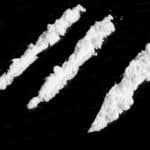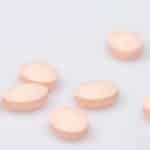Snorting Ritalin (Methylphenidate) | Effects & Dangers Of Insufflation
Ritalin is a prescription medication and the brand name for methylphenidate hydrochloride, a central nervous system (CNS) stimulant that treats symptoms of attention deficit hyperactivity disorder (ADHD) as well as narcolepsy.
Ritalin is available as a tablet that can be crushed and snorted. In fact, according to the Drug Enforcement Administration (DEA), those who abuse Ritalin may choose to snort the crushed tablet or combine a crushed tablet with water to use for injection.
These types of prescription drug abuse cause intense euphoric effects as well as a number of dangers. When it comes to the insufflation of stimulant medications, snorting Ritalin can cause one to experience a number of concerning side effects.
Side Effects Of Snorting Ritalin
Primarily used for the treatment of ADHD, the use of Ritalin can also extend to drug abuse. In fact, according to the National Institute on Drug Abuse (NIDA), this ADHD medication may be abused due to the euphoric effects it causes.
Because this prescription stimulant has a high potential for abuse, it is a schedule II controlled substance. Other schedule II drugs include Concerta, Adderall (amphetamine), and methamphetamine.
The use of Ritalin by insufflation increases the neurotransmitter dopamine at a rapid rate, therefore causing a more potent high from the stimulant drug. Partaking in this type of Ritalin abuse can cause serious health problems.
Short-Term Side Effects
Some of the short-term side effects of snorting Ritalin include:
- intense euphoria
- wakefulness
- nervousness
- loss of appetite
- dizziness
- dry mouth
- drowsiness
Long-Term Side Effects
Those who snort Ritalin long-term may experience:
- nasal damage
- high blood pressure
- irregular heartbeats or palpitations
- psychosis
- heart rate fluctuations
- infections
- fainting
- tics
- hallucinations
- depression or mental illness
Dangers Of Snorting Ritalin
In addition to the serious side effects of abusing Ritalin by insufflation, other dangers can occur.
Nasal Passage Damage
The Substance Abuse and Mental Health Services Administration (SAMHSA) states that snorting Ritalin can lead to:
- recurring nose bleeds
- loss of smell
- a deviated septum
- damage to the nasal cavity
- bacterial infections
One of the dangers of snorting Ritalin is the severe damage that can be caused to your nose. When Ritalin is snorted, it irritates the mucous membranes within the nasal passage.
Over time, these membranes can become damaged and lead to bacterial infections or frequent nose bleeds.
Overdose
Those who snort Ritalin in high doses to achieve greater euphoric effects may experience an overdose. Some of the symptoms of a Ritalin overdose include:
- confusion
- seizures
- restlessness
- muscle twitching
- loss of consciousness
- diarrhea
- sweating
- nausea
- agitation
The risk of overdose is increased if you combine Ritalin with illicit drugs like methamphetamine or heroin, or with prescription drugs like benzodiazepines or opioids.
Stimulant Addiction
Long-term prescription stimulant abuse, which includes snorting a drug like Ritalin, can lead to a substance use disorder. Substance use disorder, or addiction, is defined as continuing to use drugs despite harmful consequences.
Stimulant addiction can also lead to withdrawal symptoms when you stop use, which range from paranoia and intense drug cravings to fatigue and anxiety.
Ritalin Addiction Treatment
If you or a loved one are struggling with substance use, begin your road to recovery today by receiving addiction treatment from a trusted healthcare provider.
At Northeast Addictions Treatment Center, we provide:
To learn more about our outpatient treatment options, please contact our helpline today.
Sources
- Allergy and Rhinology — Maxillary sinus manifestations of methamphetamine abuse
- Drug Enforcement Administration — Drug Fact Sheet
- Drug Enforcement Administration — Methylphenidate
- National Institute on Drug Abuse — Stimulant ADHD Medications
- National Library of Medicine: MedlinePlus — Methylphenidate
- Substance Abuse and Mental Health Services Administration (SAMHSA) — Treatment of Stimulant Use Disorders
Written by
Northeast Addition Editorial Team
©2024 Northeast Addition Center | All Rights Reserved
This page does not provide medical advice.









